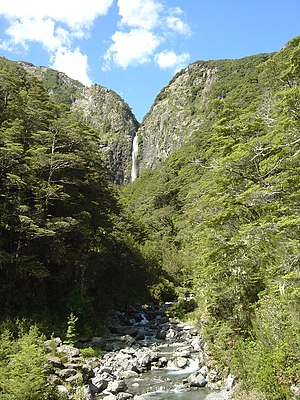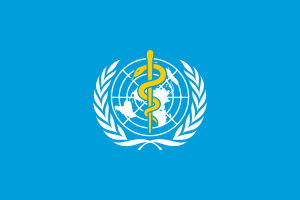 Image via Wikipedia
Image via WikipediaUnknown to many, the Philippine Supreme Court recently approved the ground breaking Rules of Procedure for Environmental Cases which took effect only last 29 April 2010. The Philippines takes pride in having a number of laws protecting the environment but the record of unabated and literally massive rape of natural and environmental resources is equaled only by the magnitude of corruption in government offices. With this backdrop, the recent procedural rules crafted and passed by the Supreme Court are meant to stop these onslaughts on environment destruction, hopefully.
As I read the Rules, I was amused that there is a specific law, particularly Act No. 3572 of several decades ago, possibly of World War II vintage, that prohibits cutting of Molave trees, and even now rare sounding trees such as Tindalo and Akli!
And beware, lest you do not know yet, including myself, that R.A. No. 3571 specifically prohibits the cutting, destroying or injuring of planted or growing trees,flowering plants and shrubs or plants of scenic value along public roads, in plazas, parks, school premises or in any other public ground. As the law is worded, you can be imprisoned for uprooting what seems to be a colorful grass or vine of scenic value in a public street.
Of course, during the Martial Law years, the late dictator Marcos should be credited in passing a number of environmental laws and presidential decrees, namely: (1) P.D. No. 705, Revised Forestry Code; (2) P.D. No. 856, Sanitation Code; (3) P.D. No. 979, Marine Pollution Decree; (4) P.D. No. 1067, Water Code; (5) P.D. No. 1151, Philippine Environmental Policy of 1977; (6) P.D. No. 1433, Plant Quarantine Law of 1978; and (7) P.D. No. 1586, Establishing an Environmental Impact Statement System Including Other Environmental Management Related Measures.
Of recent vintage are the following environment laws: (1)R.A. No. 6969, Toxic Substances and Hazardous Waste Act; (2) R.A. No. 7076, People’s Small-Scale Mining Act; (3) R.A. No. 7586, National Integrated Protected Areas System Act including all laws, decrees, orders, proclamations and issuances establishing protected areas;
(4) R.A. No. 7942, Philippine Mining Act; (5) R.A. No. 8550, Philippine Fisheries Code; (6) R.A. No. 8749, Clean Air Act; (7) R.A. No. 9003, Ecological Solid Waste Management Act; (8) R.A. No. 9072, National Caves and Cave Resource Management Act; (9) R.A. No. 9147, Wildlife Conservation and Protection Act; (10) R.A. No. 9175, Chainsaw Act; (11) R.A. No. 9275, Clean Water Act; and (12) R.A. No. 9483, Oil Spill Compensation Act of 2007; (13) R.A. No. 7308, Seed Industry Development Act; (14) R.A. No. 7900, High-Value Crops Development Act; (15) R.A. No. 8048, Coconut Preservation Act; (16) R.A. No. 8435, Agriculture and Fisheries Modernization Act of 1997; (17) R.A. No. 9522, The Philippine Archipelagic Baselines Law; (18) R.A. No. 9593, Renewable Energy Act of 2008; and (19) R.A. No. 9637, Philippine Biofuels Act, among others.
While we have many of these environment laws are in place, prosecution of violators was stifled on account of the fact that the regular Rules of Court may not have the muscle and teeth for effective and expeditious enforcement. In addition, the environmental Rules will introduce and adopt innovations and best practices ensuring the effective enforcement of remedies and redress for violation of environmental laws.
While the provisions of the regular Rules of Court are applicable, there are many new and innovative provisions under the environmental rules. Firstly, there is the consent decree which refers to a judicially-approved settlement between concerned parties based on public interest and public policy to protect and preserve the environment. Secondly, there is the continuing mandamus which is a writ issued by a court in an environmental case directing any agency or instrumentality of the government or officer thereof to perform an act or series of acts decreed by final judgment which shall remain effective until judgment is fully satisfied. Thirdly, there is the environmental protection order (EPO) refers to an order issued by the court directing or enjoining any person or government agency to perform or desist from performing an act in order to protect, preserve or rehabilitate the environment. Fourthly, there is the precautionary principle which states that when human activities may lead to threats of serious and irreversible damage to the environment that is scientifically plausible but uncertain, actions shall be taken to avoid or diminish that threat. Fifthly, there is the innovative strategic lawsuit against public participation (SLAPP) which refers to an action whether civil, criminal or administrative, brought against any person, institution or any government agency or local government unit or its officials and employees, with the intent to harass, vex, exert undue pressure or stifle any legal recourse that such person, institution or government agency has taken or may take in the enforcement of environmental laws, protection of the environment or assertion of environmental rights.
One very interesting provision is the citizen's suit where any Filipino citizen in representation of others, including minors or generations yet unborn, may file an action to enforce rights or obligations under environmental laws. Take note that you can file an action involving an environment case by alleging that you represent minors or even generations yet unborn.
And what about that strange writ of kalikasan? Especially for prospective Philippine Bar examinees, the writ of kalikasan is a remedy available to a natural or juridical person, entity authorized by law, people’s organization, non-governmental organization, or any public interest group accredited by or registered with any government agency, on behalf of persons whose constitutional right to a balanced and healthful ecology is violated, or threatened with violation by an unlawful act or omission of a public official or employee, or private individual or entity, involving environmental damage of such magnitude as to prejudice the life, health or property of inhabitants in two or more cities or provinces.
Although it is too early to tell, the passage of the new environment rules is a welcome development in preserving our natural resources and in prosecuting violators of our environmental laws.






